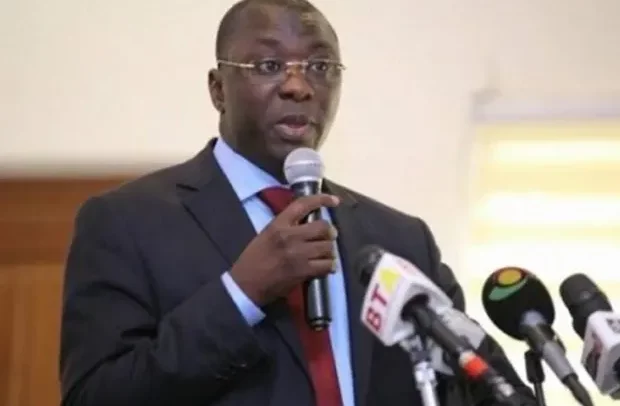Finance Minister, Dr. Mahammed Amin Adam
A Business Desk Report with additional facts from Reuters Official creditors have given the country another opportunity to rework its international bonds.
This was after its official creditors confirmed the proposed debt rework was not overly favourable to bondholders.
“The Ministry … has received a formal confirmation from its Official Creditor Committee (OCC) that the Agreement in Principle reached with representatives of Eurobond holders is consistent with the Comparability of Treatment principle,” the finance ministry said in a statement.
Comparability of Treatment is a principle from the Paris Club of wealthy creditor nations aimed at ensuring its members do not give outsized concessions compared to private lenders or others outside the group.
A spokesperson of the Paris Club confirmed the OCC had found Ghana’s bond restructuring deal gave comparable treatment to different types of creditors.
Leeuwner Esterhuysen, economist at Oxford Economics Africa, said the green light from official creditors meant Ghana could soon issue new bonds to investors to replace the ones being restructured.
“The country aims to begin the bond exchange this month still and conclude it by the end of September,” he said.
Ghana had in January reached a deal to restructure $5.4 billion of loans with its Official Creditor Committee, including China and France, which co-chair the group.
The country clinched an agreement in principle with two bondholder groups to restructure around $13 billion of its international bonds in late June, making it the second African country after Zambia in recent weeks to reach the final stages of a debt overhaul.
The government now needs to ask all its bondholders to vote on the proposed deal, which if confirmed would finalise the debt rework.
The country defaulted on most of its $30 billion in external debt in 2022, after the COVID-19 pandemic, the war in Ukraine, and higher global interest rates exacerbated years of overstretched borrowing.


